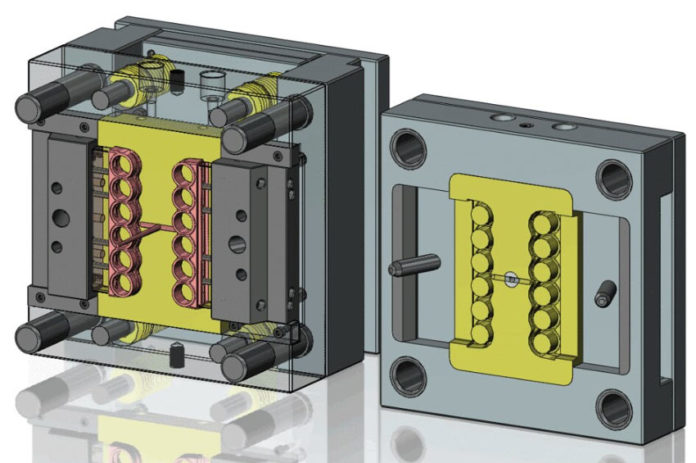
We are lucky to be living in the age of information. Whether it’s news publications, how-to videos, scientific data, conspiracy theories or suppliers for a product you’re looking for, most people in America have everything at their fingertips.
Unfortunately, this can also be a curse and create “decision paralysis” for some. So, the question becomes, “how do you sift through it all?” The same question arises when you go to find a suitable supplier for your plastic part.
When narrowing down injection molding companies, here are a few questions that can help you decide:
Is the injection molding company knowledgeable?
Do they have knowledge and experience that applies to your project? Are they open with this information, and what sort of impression do they leave you with in terms of their ability to successfully create your product? Injection molding is a complicated process, and the company you choose should have plenty of resources to help you create the best plastic product possible.
What kind of customer support can you expect from injection molding companies?
Communication is key to the plastic injection process. Your manufacturer should always:
- Answer the phone
- Reply to emails in a timely manner
- Take time to understand your needs
- Understand your product application
- Understand your quality requirements
If you have a bad first impression, don’t expect the second to be much better!
How experienced is this potential partner?
How long have they been around? Are their engineers experts in injection molding? Have they demonstrated the know-how to overcome difficult challenges?
A good injection mold company will have been doing business for at least a decade and will have the experience necessary to overcome any of the myriad problems that can arise throughout the injection molding process.
Is the prospective company honest?
Do they give a realistic appraisal of your product, or do they seem to promise everything without having fully grasped your goals? If their quote seems too good to be true, it probably is. They may use substandard materials. Or even worse, they might intend to raise the price once they have you as a customer, which is common practice for many manufacturers.
Does the manufacturer provide references?
Are they willing to give you contact information for previous or current clients? If they will, the questions above are good ones to ask their referrals.
Does the company offer any kind of guarantee?
Will they provide a guarantee on the molds they build? What about the parts? Will they stand behind the product if it doesn’t match specifications or there is a problem in the workmanship?
Molds represent a very significant investment. The cost of a mold can range from $1,000 upwards of $100,000. Make sure you can count on your chosen company to deliver!
Does the company possess the ability and experience to complete the project?
Not all molders can mold all products.
As a rule of thumb, it requires three or more tons of pressure per square inch of footprint that your product has. This excludes any gaps or holes in that footprint. For instance, if you wanted to create a mold for an 8×10 picture frame you would not need a 240-ton machine (80×3), you would subtract the center hole from the equation. Also, if your product has an insert, a threaded brass insert for example, make sure the molding company has the knowledge and ability to mold it in cycle or insert it later as a secondary operation. Lastly, it is important to ensure that your molder maintains their dryers and properly dries their raw materials. This common oversight can lead to brittle material and broken parts.
Product development can often be a long and expensive process, and having the right partner throughout can mean the difference between a product succeeding or failing. At Rex Plastics, we encourage all of our potential clients to ask lots of questions and strongly suggest that they perform due diligence to ensure their projects are successful.
Choosing injection molding companies can be as important as choosing marketers, operations managers and distributors. Hopefully, these tips and questions will help streamline the process and prevent any unnecessary “decision paralysis.”
Rich Clark is the owner of Rex Plastics, a plastics manufacturer in Vancouver. To learn more, visit https://rexplastics.com/.


